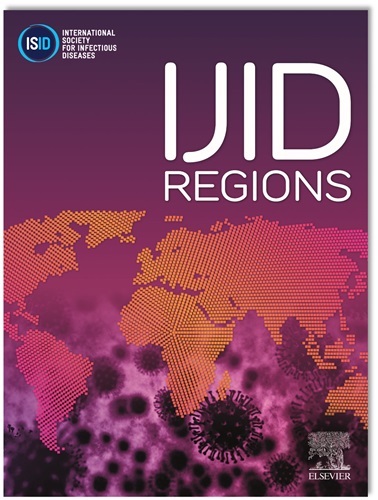Establishment of a clinical helpline for mpox: comparison of the 2022 and 2024 experience in the UK
IF 4.8
2区 医学
Q1 INFECTIOUS DISEASES
引用次数: 0
Abstract
Introduction
The UK Imported Fever Service is run by the UKHSA Rare and Imported Pathogens Laboratory (RIPL). It provides a 24/7 helpline for clinicians managing patients with suspected High Consequence Infectious Diseases (HCIDs) and provides the UK portal for HCID risk assessment and testing, and advice on immediate management and infection.
In May 2022, the IFS assisted in diagnosing the first UK cases of clade II mpox. This was followed by a significant rise in the number of calls to the IFS, resulting in the establishment of a dedicated 24/7 mpox helpline, staffed by UKHSA physicians from microbiology, virology, GUM, infectious diseases and public health.
In 2024, the outbreak of clade I mpox in Central Africa resulted in the declaration by WHO of a Public Health Emergency of International Concern (PHEIC). As part of the UK's preparedness activities, data from the 2022 helpline experience was reviewed to inform readiness for a helpline in the event of importation of cases into the UK.
Methods
Telephone data were accessed for the initial outbreak period in 2022, and from the announcement of the PHEIC in 2024. The call logs were interrogated to understand the type of caller, reason for calls and what advice was given.
Results
During the first 2 weeks of the 2022 outbreak, calls to the IFS increased from approximately 20 calls/week to over 200 calls/week, prior to the activation of the dedicated mpox helpline. The 2022 helpline received over 1400 calls during the first 6 weeks of the outbreak. The majority of suspected cases were in males aged 20-60. The age/gender distribution of suspected cases was similar to the confirmed positive cases.
In 2024, calls to the IFS about suspected mpox increased to approximately 30 calls / week. Only a minority of suspected cases (33/177, 17%) had a relevant travel or exposure history for clade I mpox, and none tested positive. This was absorbed into the standard IFS working as there were no UK imported cases. However, based on the lessons learned from 2022, an SOP and Terms of Reference were drawn up in readiness for helpline establishment.
Discussion
There was a clear need to provide support and information for frontline clinicians early in the 2022 outbreak: this was addressed by the establishment of a dedicated helpline. Data from the calls, including age, gender and exposure history, provided early insights into the epidemiology and transmission of this mpox lineage, ahead of the analysis of confirmed cases. The 2022 experience was used to build resilience for the possibility of imported cases in 2024.
Conclusion
Data from helpline calls may provide early information on the transmission and exposure risk factors in outbreaks, and are a key mechanism for supporting frontline clinicians.
求助全文
约1分钟内获得全文
求助全文
来源期刊
CiteScore
18.90
自引率
2.40%
发文量
1020
审稿时长
30 days
期刊介绍:
International Journal of Infectious Diseases (IJID)
Publisher: International Society for Infectious Diseases
Publication Frequency: Monthly
Type: Peer-reviewed, Open Access
Scope:
Publishes original clinical and laboratory-based research.
Reports clinical trials, reviews, and some case reports.
Focuses on epidemiology, clinical diagnosis, treatment, and control of infectious diseases.
Emphasizes diseases common in under-resourced countries.

 求助内容:
求助内容: 应助结果提醒方式:
应助结果提醒方式:


